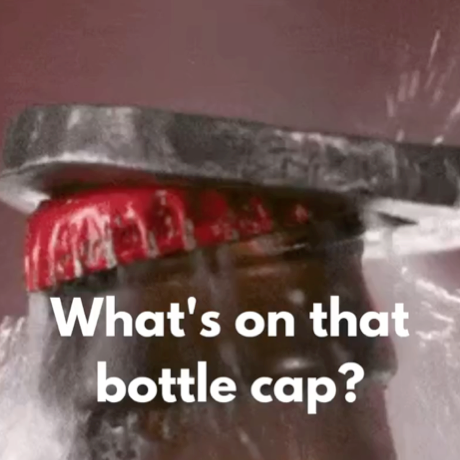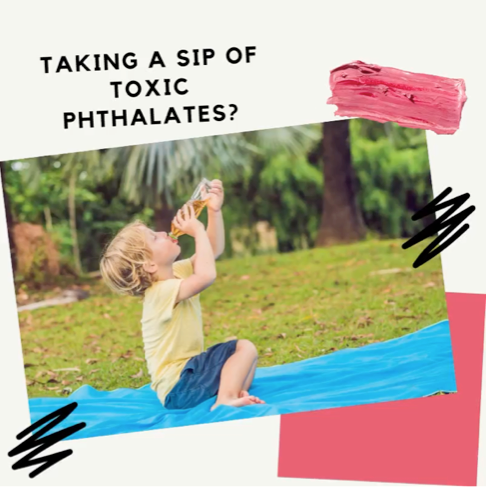Everyone has a favorite beverage, did yours make our list?
Capped with Toxics is a detailed report on the part of a beverage that most people simply toss away without a thought: the bottle cap.
We partnered with scientists to test nearly 300 bottle caps and discovered that most glass-bottled beverages we tested were capped with toxic or unsustainable chemicals. Now, you may be wondering: How on earth is this important? Simply put, toxic chemicals don’t belong in our food, beverages or the packaging that they come in and we want to help companies make the changes necessary to eliminate them from the things we consume.


Danger, danger: Ortho-phthalates and the “poison plastic”
In our testing of bottle caps, we found caps from about 50 beverage brands that contained a chemical called ortho-phthalates and caps from 94 brands that were made of polyvinyl chloride (PVC or vinyl), otherwise known as the “poison plastic.”
Every day we risk exposure to a toxic chemical called phthalates (THAL-eights). Phthalates are used to soften plastics, in fragrance, inks, adhesives, and coatings. People are exposed to phthalates from many different sources, including from food and beverages. While not directly added, phthalates can leach into our food and beverage from industrial equipment used to process it or from its packaging.
You might ask, “We aren’t drinking from the bottle cap, so what’s the problem?” Well, do you shake that ice tea or juice before drinking it? Your beverage still may come in contact with the inside of the cap, and studies have found phthalates in beverages packaged with caps that have phthalates.
Scientists have found that phthalates can harm brain development in babies and young children, reduce sperm count and increase the risk of birth defects associated with testicular and prostate cancer.
The poison plastic got its name due to the toxic hazards created across its lifecycle during production, use and disposal. Vinyl plastic requires large amounts of chemical additives known as “plasticizers,” such as ortho-phthalates, to keep the plastic soft and pliable. These plasticizers make up about 40% of the vinyl plastic by weight and are continually shed into their surrounding environment.
Which brand are we calling out?
We’re calling on all brands to protect consumers by eliminating any phthalates and PVC/vinyl in their bottle caps. Many brands were already using better caps and several, as noted in the report, changed after we contacted them about their bottle caps. One brand in particular, Martinelli’s, made the switch after we released the report and called attention to them with an online petition.
To keep the ball rolling we are now calling on Sprecher Brewing Co.,the new owner of WIT Beverage Co. (maker of WBC Craft Sodas and Caruso’s Sodas), to protect consumers by eliminating any phthalates that may be in their bottle caps and any PVC that may be in their cap liners. To note, in addition to testing WIT beverages, we also tested Sprecher brand beverages. Those bottle caps tested better than WIT beverages, containing vinyl in their bottle caps but not phthalates, showing that Sprecher Brewing Co. already has a source for phthalate-free caps.
The toxic byproducts of vinyl production and phthalates disproportionately affect communities of color, low-income communities and children. These communities are also over-represented among purchasers of sweetened beverages and customers of dollar stores, such as those where the WIT products we tested were purchased.
